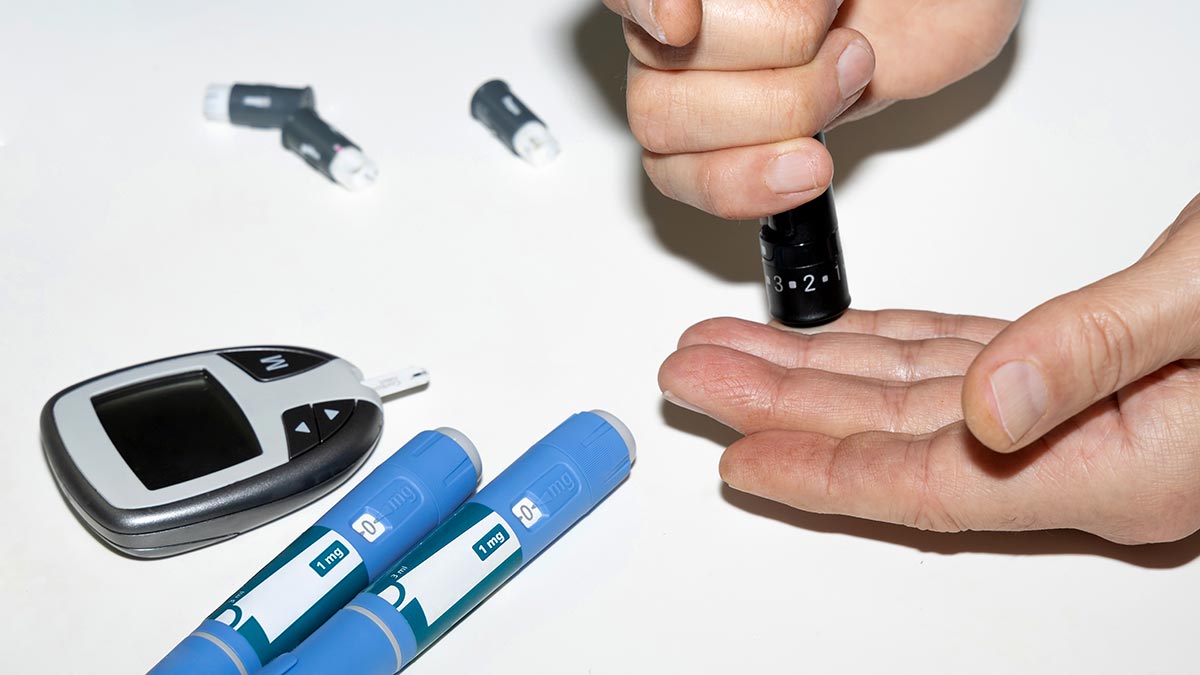Ask Dr Adam: Are Weight-Loss Injections the Key to Tackling Obesity?

If you’re tapped into the news cycle, you’ll probably have heard of Ozempic, a diabetes drug that has gained worldwide attention for helping celebrities and tech moguls lose weight rapidly.
Like Wegovy and Mounjaro, Ozempic is a brand name in a wider class of injectable drugs called GLP-1 agonists that have recently emerged as key players in the UK government’s anti-obesity strategy. Earlier this month, UK Health Secretary Wes Streeting suggested that the weight-loss injections could help unemployed people struggling with obesity return to work.
Plus, with some news outlets speculating that weight-loss injections could help reduce NHS costs tied to treating obesity-related illnesses like heart disease and diabetes, there’s mounting sentiment that these drugs could transform the medical landscape. But before we hail them as a cure-all, we asked Form’s Head of Nutrition, Dr Adam Collins, to give us the skinny on these controversial jabs, explaining the benefits and concerns.

What are these drugs and how do they work?
While the ‘skinny jab’ may seem like a relatively new phenomenon, similar drugs have been around for over 15 years, having been initially developed to improve insulin sensitivity in people with diabetes. The first of these, called GLP-1 receptor agonists, mimic a natural hormone in our bodies known as Glucagon-Like Peptide 1 (GLP-1).
This hormone is secreted in the small intestine when we eat protein or carbohydrates and works to increase insulin production, helping control blood sugar levels.
However, GLP-1 also acts as a satiety hormone, signalling to the brain that we’re full. The first drug in this category, liraglutide (known commercially as Saxenda), was successful in blood sugar regulation but had to be injected daily.
Next came semaglutide, also known as Ozempic, with an improved formula that lasted longer – meaning a single injection weekly was enough. But a surprising side effect emerged during clinical trials: weight loss. With higher doses, semaglutide’s weight loss effects appeared to increase, leading to the launch of Wegovy, a version specifically marketed for losing weight.
Soon after, a new class of drugs emerged, combining the effects of GLP-1 with another hormone, Gastrin Inhibitory Peptide (GIP), further boosting their benefits. These ‘dual agonists,’ including tirzepatide (marketed as Mounjaro), show promising results not only in weight loss but also in improved fat storage and gut health.
What happens when you take these drugs?
Taking GLP-1 receptor agonists appears to have two powerful effects: increased insulin action and sustained satiety. Unlike the body’s natural GLP-1, which is secreted after meals and quickly breaks down, these drugs are formulated to linger in the body, requiring just one injection a week. They also deliver 2 to 3 times the typical amount of GLP-1 produced naturally, creating a constant ‘full’ feeling that curbs the urge to eat.
In clinical trials, this effect has been profound: patients using semaglutide and tirzepatide have lost 10-20% of their body weight in just six months, significantly more than those given a placebo. But as effective as these drugs are, are they a permanent fix?

What are the concerns?
As with any drug, these medications come with side effects. Some people experience ‘sulphur burps’ (caused by reduced stomach acid production), as well as digestive issues like diarrhoea, constipation, bloating, and stomach cramps. These symptoms can be uncomfortable enough to lead some people to discontinue the treatment, although for most, the results outweigh the discomfort.
While there have been some scare stories about increased cancer risk, such as thyroid cancer, current evidence doesn’t substantiate these concerns. However, the long-term effects of taking these drugs over several years remain unknown.
An even bigger concern lies in the consequences of these drugs’ effectiveness. For some, they’re so effective at suppressing appetite that food becomes unenjoyable, with eating almost feeling like a chore. This can impact relationships, family dynamics, and social interactions, potentially causing psychological harm.
The extreme appetite suppression can also lead to a diet that’s nutritionally inadequate, especially for those who already struggle to get sufficient vitamins, minerals and fibre. With a lower protein and calorie intake, there’s also the risk of losing lean muscle mass, and people may not have the energy for physical activity.
Studies of GLP-1 agonist weight-loss trials show some lean mass loss, though we’re still determining how this compares against other weight-loss methods.
Let’s not forget the importance of lifestyle interventions
While GLP-1 agonists are highly effective for weight loss, they don’t replace the need for a healthy lifestyle. The allure of these drugs is that they achieve weight loss without the need for drastic diet and lifestyle changes, but this ease comes with potential downsides.
For long-term health, the focus should ideally be on weight maintenance rather than weight loss alone. These drugs may be helpful as a bridge to a healthier weight, but sustainable results still require diet, exercise and personal health responsibility.
There’s no denying that GLP-1 agonists are a powerful addition to weight-management tools, but they’re by no means a cure-all. The enduring challenge remains in helping people prioritise their wellbeing at any weight and encouraging lifestyle choices that lead to lasting health, regardless of size.


















